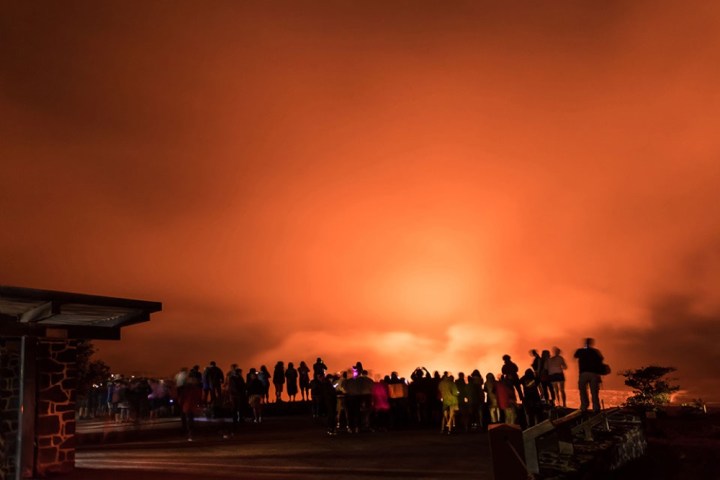
Grabbing a picture or fifty for your Instagram followers is all part of modern-day life, but going out of your way to grab that money shot isn’t always such a great idea.
A report from the Royal Geographical Society this week suggests an increasing number of people are even making special travel plans with the sole aim of bagging that eye-catching shot, though the adventure can sometimes turn into something of a nightmare.
University of Cambridge geographer Amy Donovan, who wrote the report, notes how an increasing number of people are flying around the world as soon as they hear about a volcano blowing its top, with Iceland a particularly popular spot thanks to its abundance of geological activity.
But this so-called “volcano tourism” carries with it a number of risks, especially when those visitors have little experience of how volcanic activity can impact the surrounding area.
While Donovan says she totally understands the lure of the volcano, she also points out how people often unwittingly place themselves in danger by getting up close to this formidable force of nature.
“You can breathe the gas, hear the sounds the earth is making. They want to get closer to feel the power of the earth,” the geographer told the BBC.
The dangers of getting up close to an erupting volcano, in case you didn’t already know, include getting hit by falling rocks and lava bombs, becoming enveloped in choking dust, or being overcome by poisonous fumes. There’s also a risk of becoming trapped by lava flows, which almost happened to these folks in Hawaii earlier this year.
Donovan suggested that the uptick in so-called “volcano tourism” could be partly down to the proliferation of smartphones and social media, with people keen to photograph or record video of themselves in dramatic, active landscapes.
And when things go wrong for tourists who are close to volcanoes, it of course puts the lives of rescuers at risk, too, Donovan pointed out.
“Many active volcanic countries face the dilemma of wanting tourists, but also wanting to keep people safe, which creates a difficult conundrum,” Donovan said, adding, “People break safety regulations. You can’t police the site of a volcano at night.”
A BBC production crew, along with dozens of tourists, had a lucky escape on Mount Etna in Italy in 2017 when the volcano suddenly erupted while the crew was filming. There was no warning about what was about to happen, but the BBC’s dramatic footage clearly shows the panic that ensued when the eruption began.
In a bid to prevent the more reckless selfie enthusiasts from harming themselves, the authorities in India have been banning selfies in popular tourist spots where accidents have occurred in the past, such as the top of cliffs.
Editors' Recommendations
- Selfie stunt sets new Guinness World Record
- Volcanoes on Mars exploded in ‘super eruptions’ that blotted out the sun
- ‘Mars isn’t dead.’ There could be active volcanoes on the red planet
- NASA’s other Mars rover posts stunning selfie beside a rocky outcrop
- Drone technology improves ability to forecast volcanic eruptions


